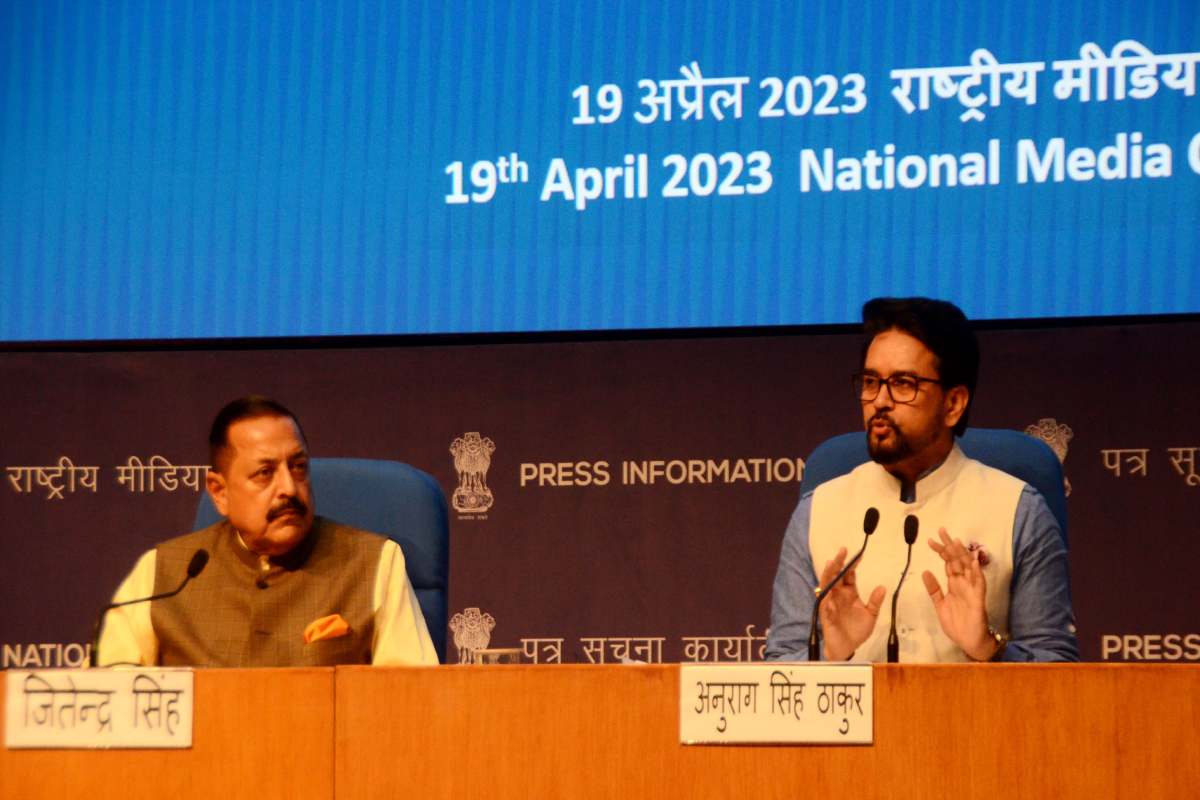The Union Cabinet, chaired by Prime Minister Narendra Modi, on Wednesday approved the National Quantum Mission (NQM) at a total cost of Rs.6003.65 crore over the next eight years, aiming to seed, nurture and scale up scientific and industrial R&D to new heights and create a vibrant & innovative ecosystem in Quantum Technology (QT).
This was announced by Information and Broadcasting Minister Anurag Thakur and Minister of State for Science and Technology Jitendra Singh at a press briefing. The financial allocation for the Mission will be spent from 2023-24 to 2030-31.
Advertisement
The Mission will take India reach unprecedented levels of scientific capabilities, and bring it at par with the six select nations developing the technology, accelerating QT-led economic growth and nurturing the ecosystem in the country.
Thakur said Quantum computing can process data several times faster than can be done in the existing systems and in much lesser time. The technology has immense possibilities in fields like pharmaceuticals, communications, finance, health, energy, defence data and security areas.
He said the Mission will be managed by the Science and Technology department with a Mission Director. A secretariat will be created for it and there will be a governing body, presided over by a scientist or an entrepreneur from technology, industry or research.
Dr Jitendra said Wednesday’s Cabinet decision was one of the most significant decisions taken by the Narendra Modi Government in the last nine years. India is one of the biggest utilisers and stakeholders of information and technology. The quantum technology deals with information processing and will make it faster, more authentic, more precise and secure. It will give India quantum jump in technology, he said.
Dr Singh said among the beneficiaries of the new technology will be start ups. As there is movement from the transistor-based wave system to atom technology, all features like speed and authenticity will improve. The security is so high that according to one study, it may take three lakh thousand years to break the key, the Minister said.
He said the six countries in the world engaged in the development of the technology were also in the R&D stage. These six countries are USA, Finland, Canada, Austria, France and China.
The new mission targets developing intermediate scale quantum computers with 50-1000 physical qubits in eight years in various platforms like superconducting and photonic technology.
Satellite based secure quantum communications between ground stations over a range of 2000 kilometres within India, long distance secure quantum communications with other countries, inter-city quantum key distribution over 2000 km as well as multi-node Quantum network with quantum memories will be some of the deliverables of the Mission.
The mission will help develop magnetometers with high sensitivity in atomic systems and Atomic Clocks for precision timing, communications and navigation. It will also support design and synthesis of quantum materials such as superconductors, novel semiconductor structures and topological materials for fabrication of quantum devices.
Single photon sources/detectors, entangled photon sources will also be developed for quantum communications, sensing and metrological applications.
Four Thematic Hubs (T-Hubs) will be set up in top academic and National R&D institutes on the domains – Quantum Computing, Quantum Communication, Quantum Sensing & Metrology and Quantum Materials & Devices. The hubs which will focus on generation of new knowledge through basic and applied research as well as promote R&D in areas that are mandated to them.
The Mission will provide a huge boost to National priorities like digital India, Make in India, Skill India and Stand-up India, Start-up India, Self-reliant India and Sustainable Development Goals (SDG).











